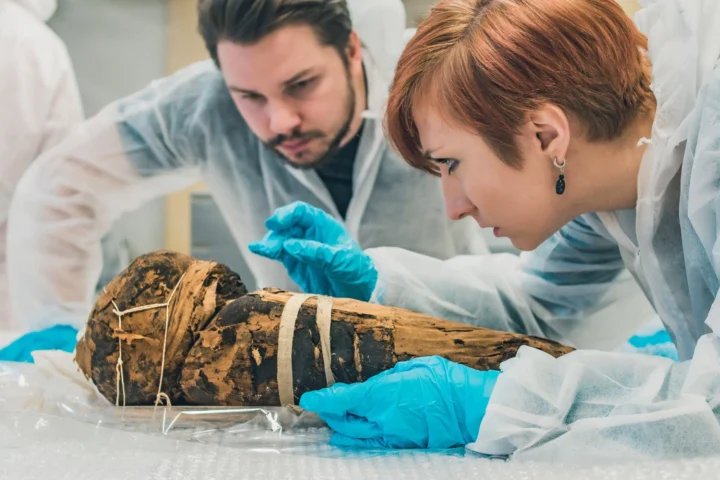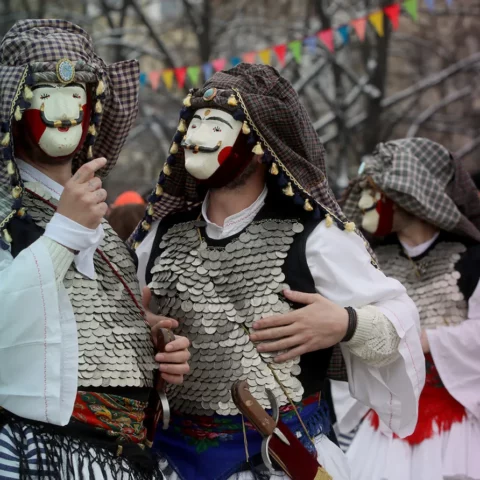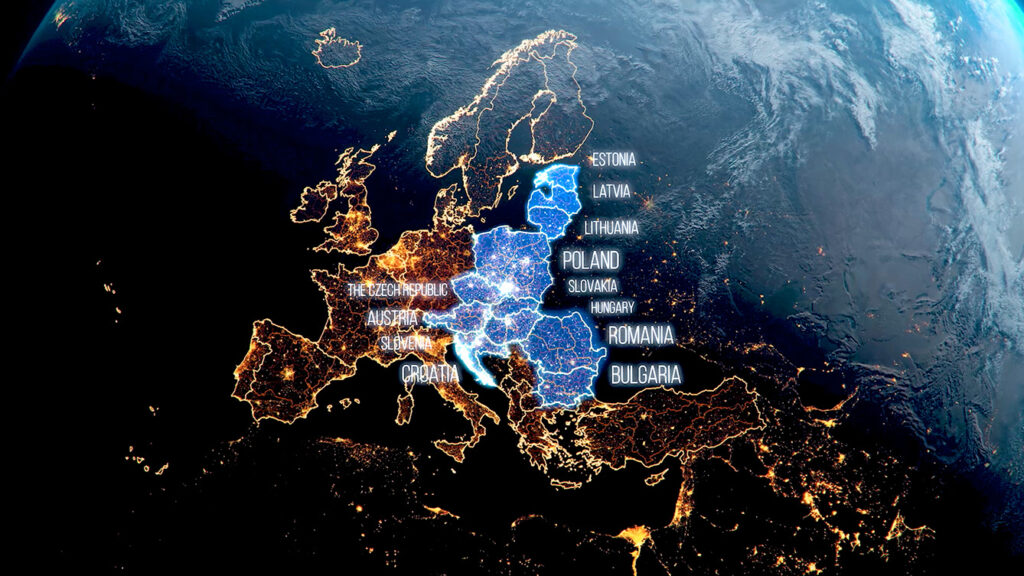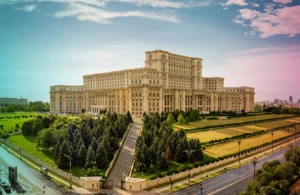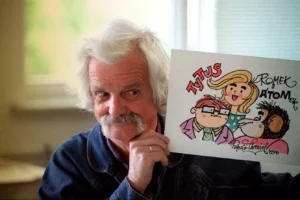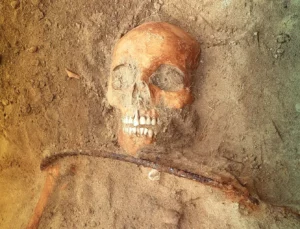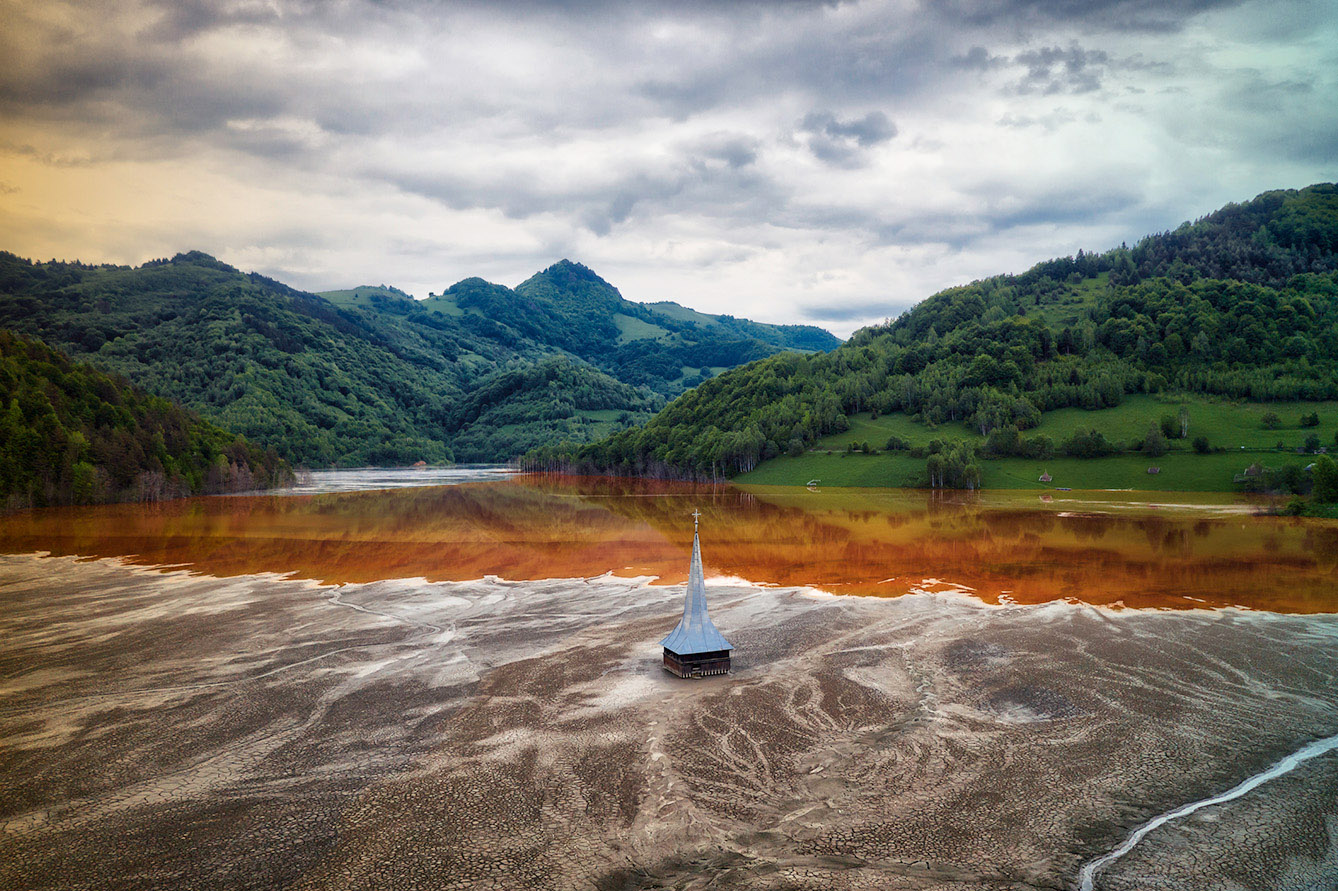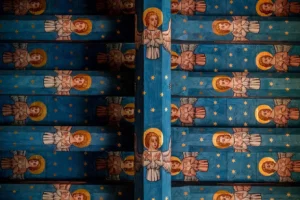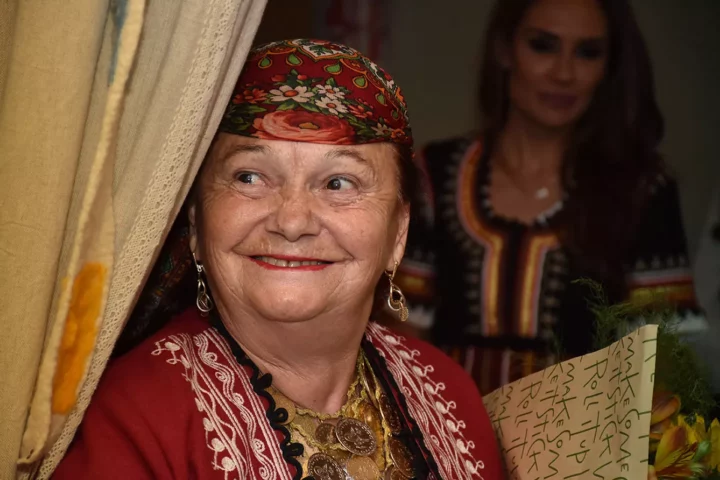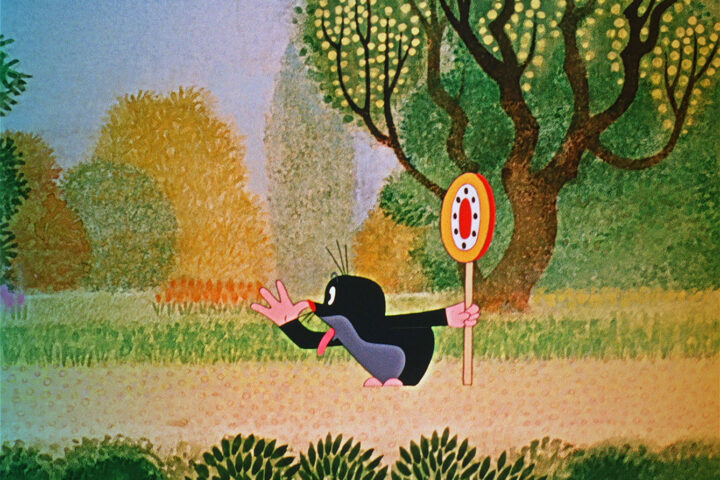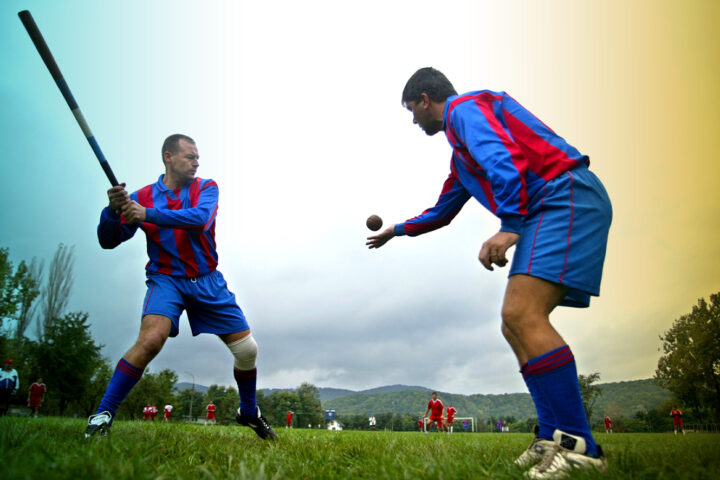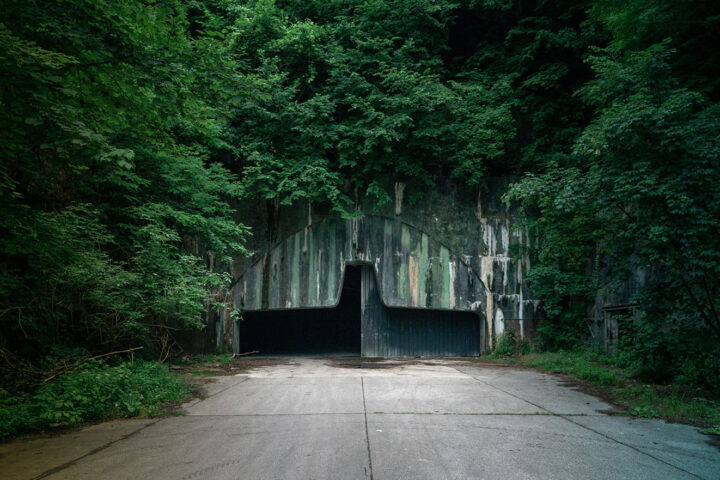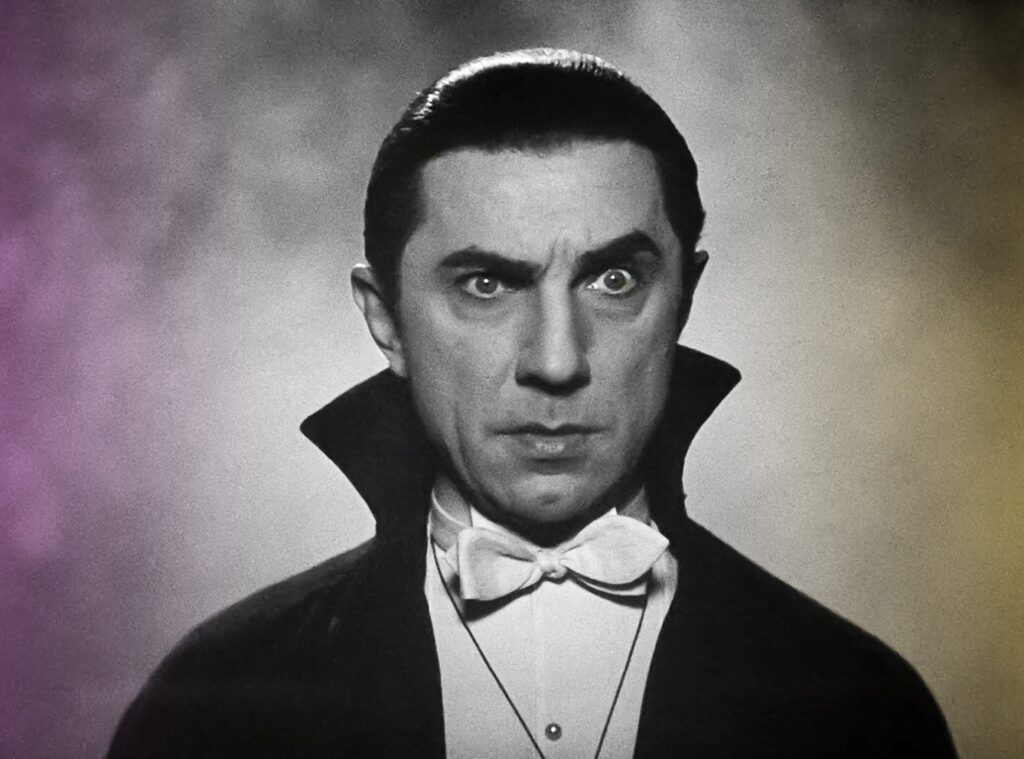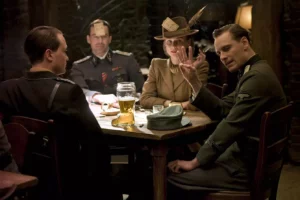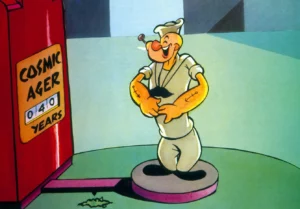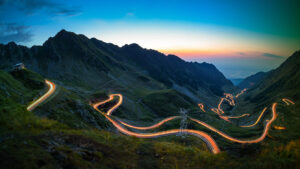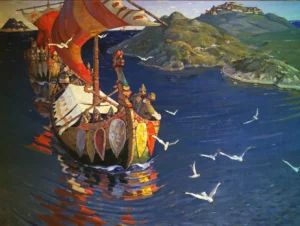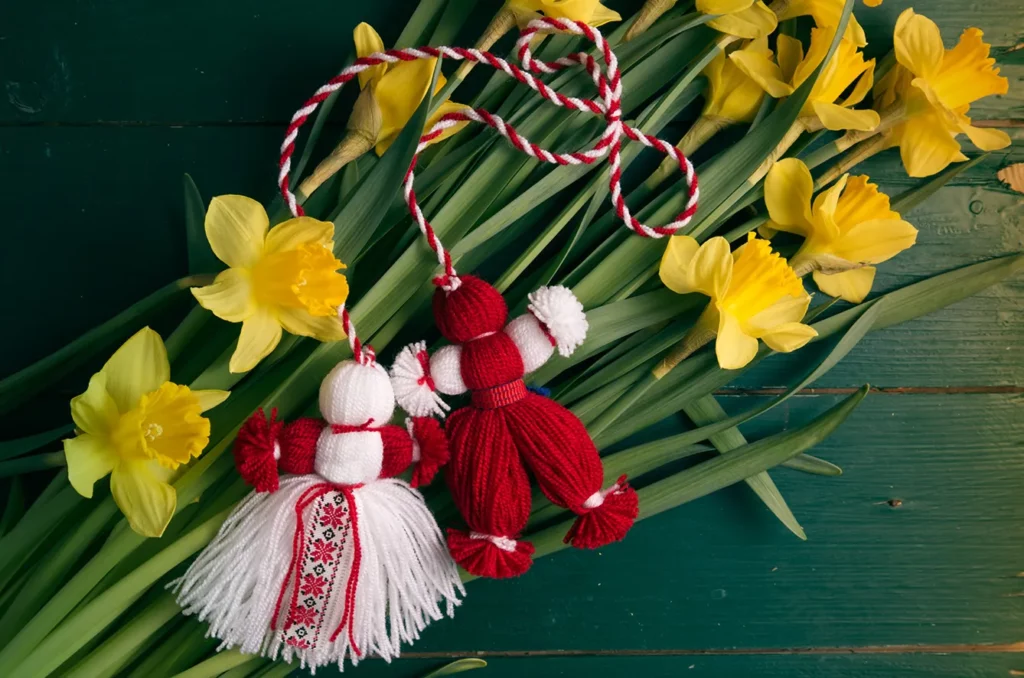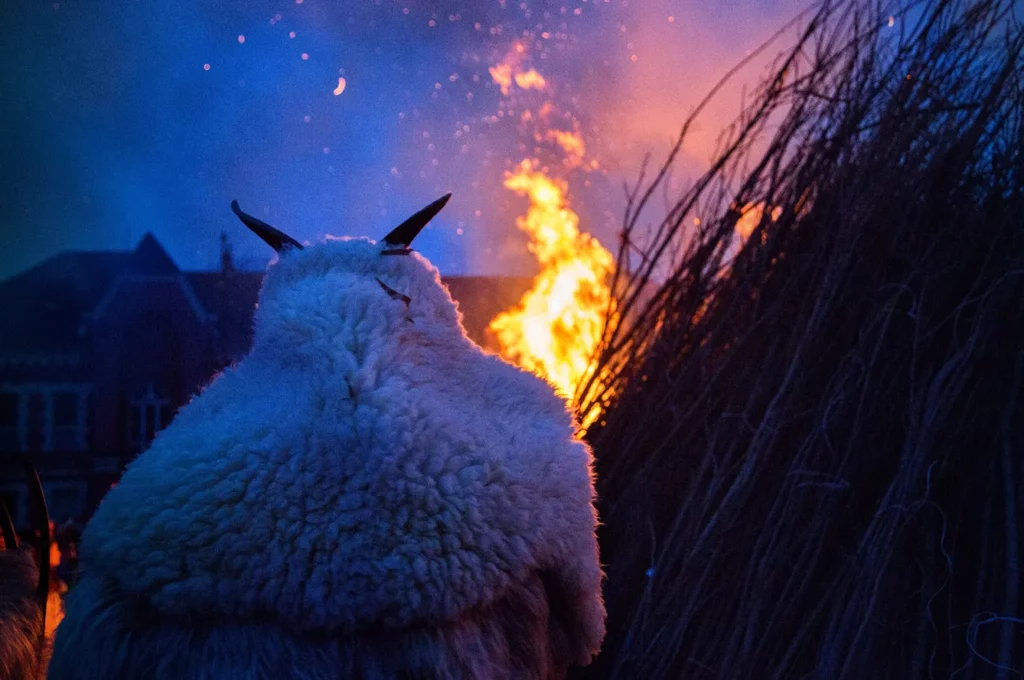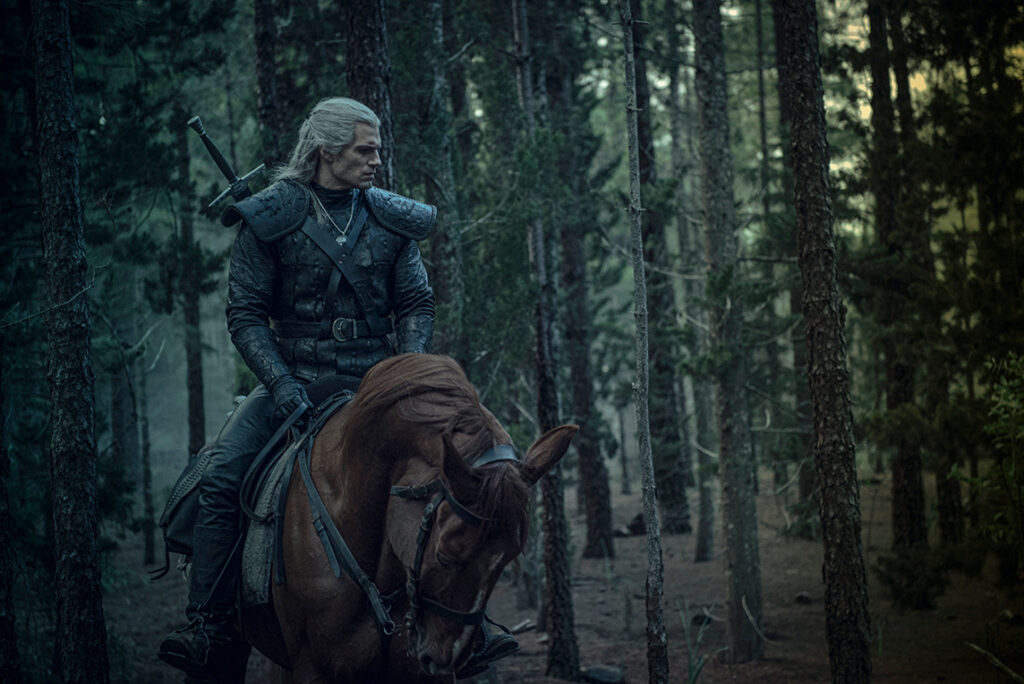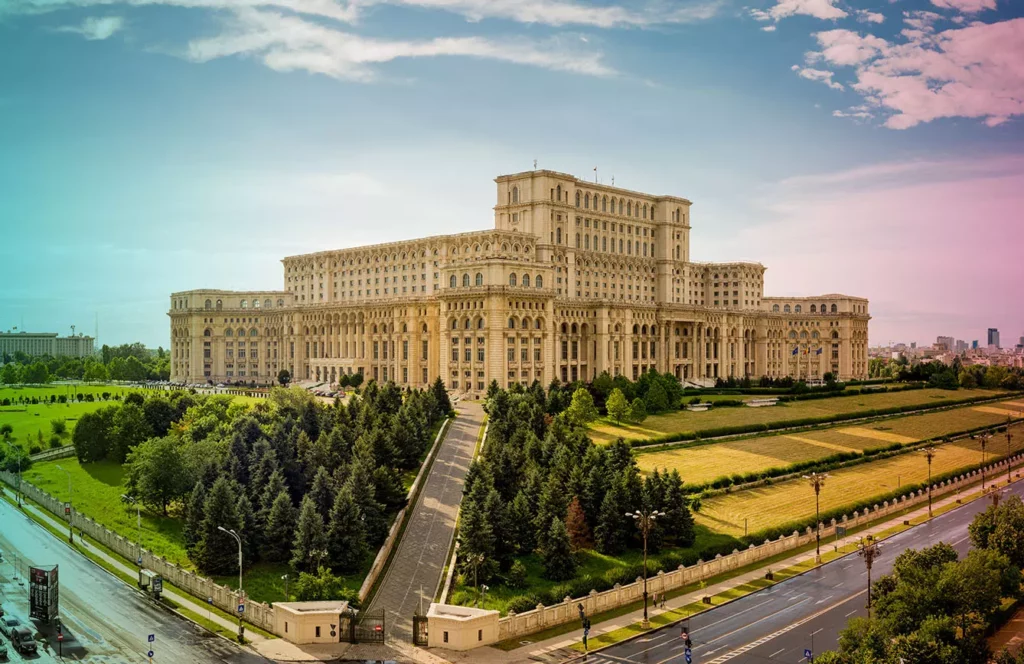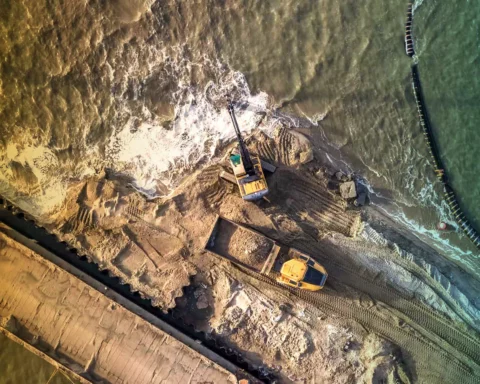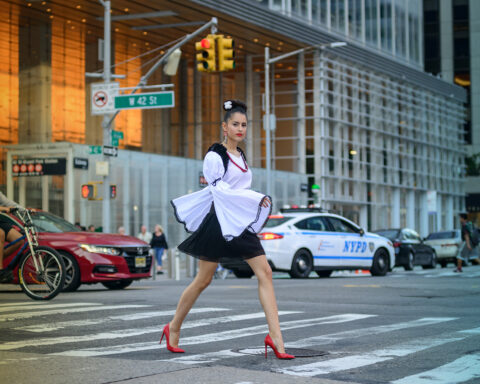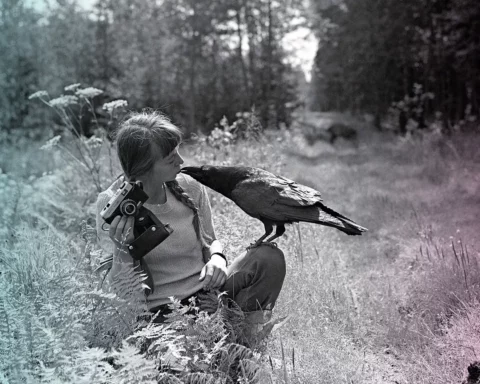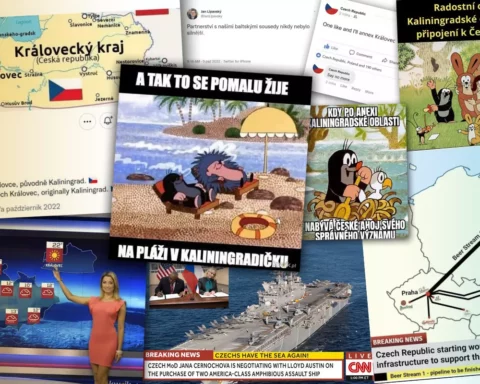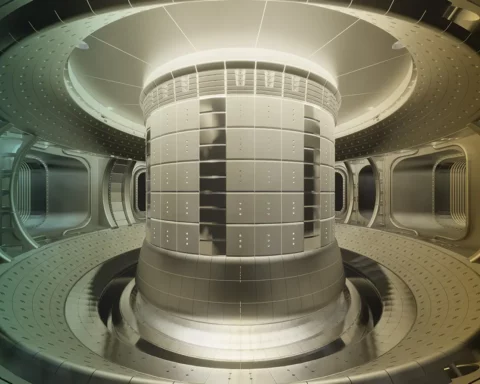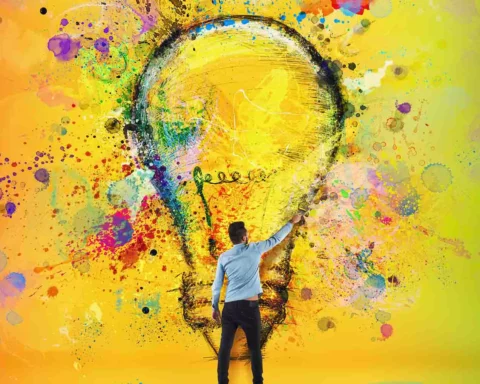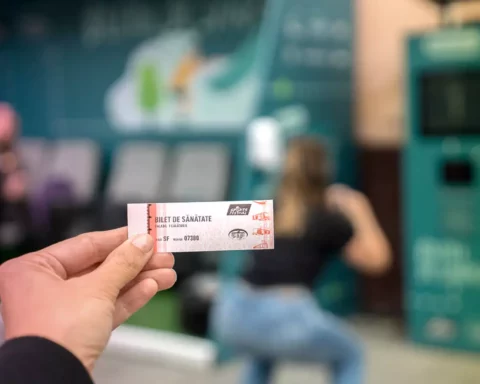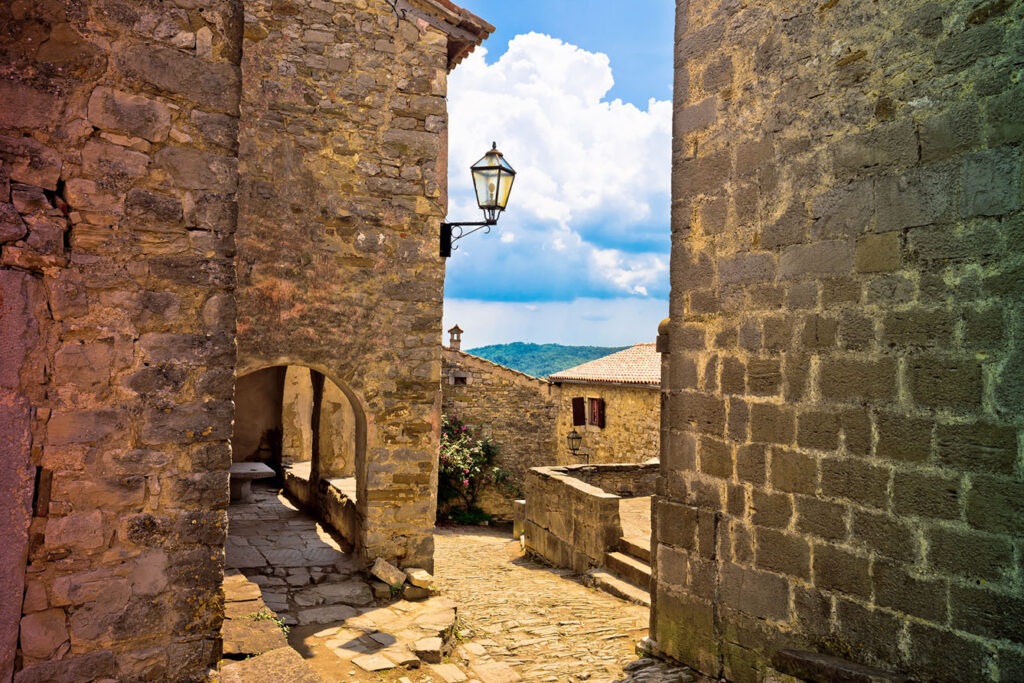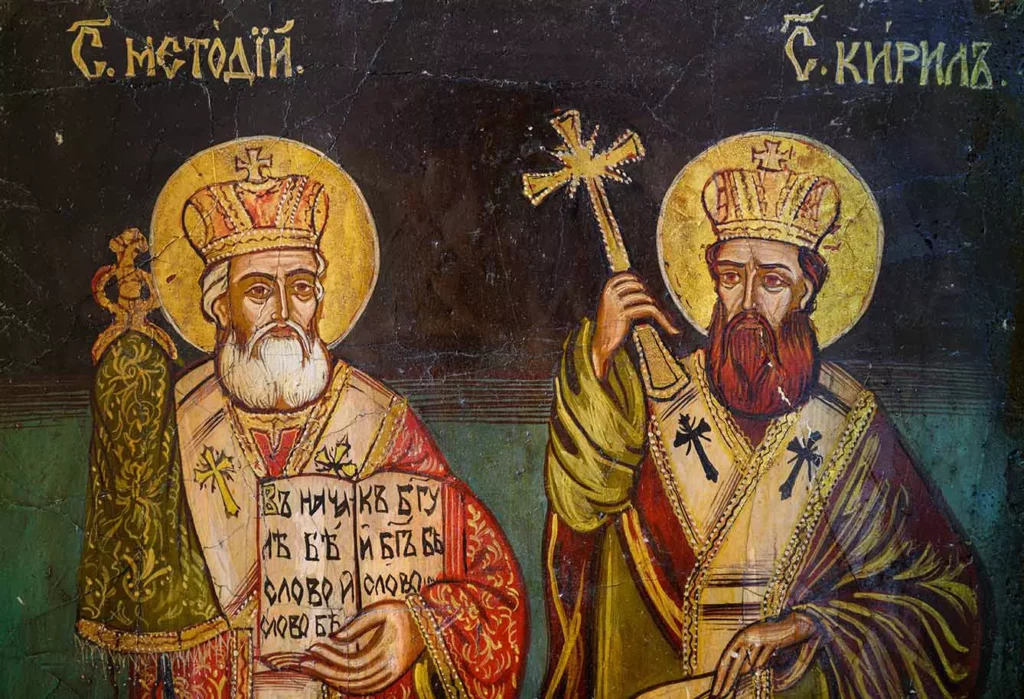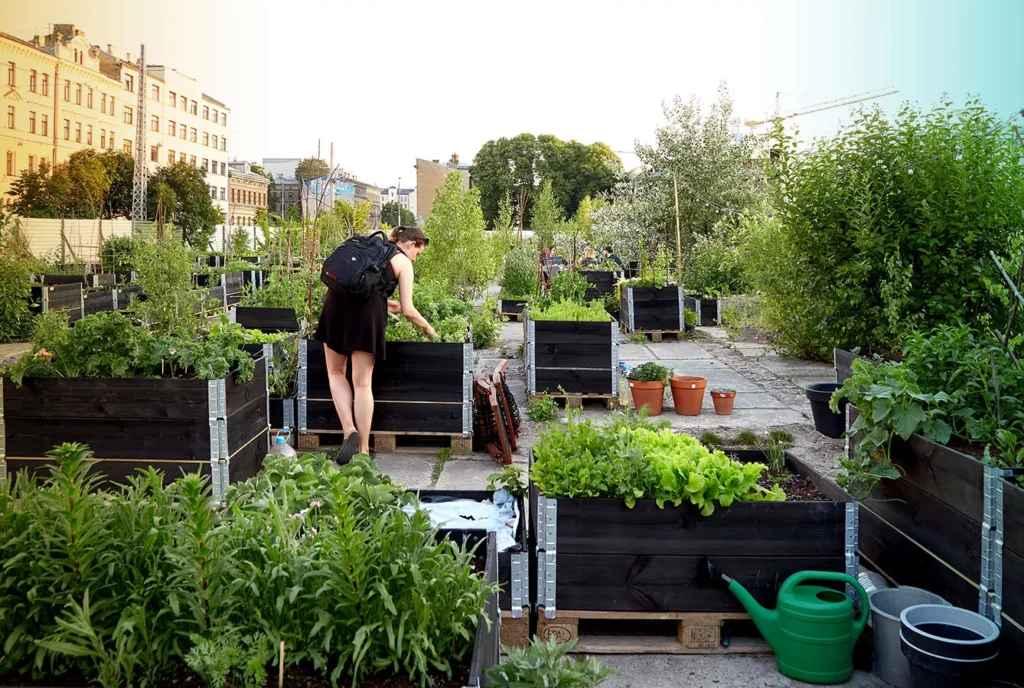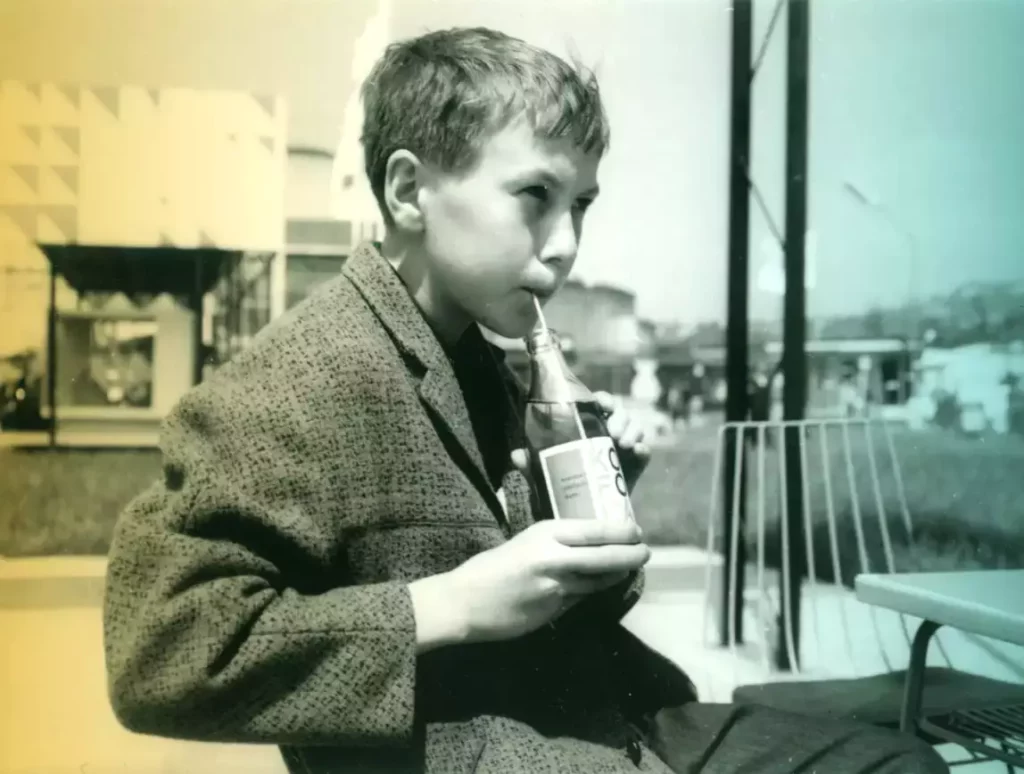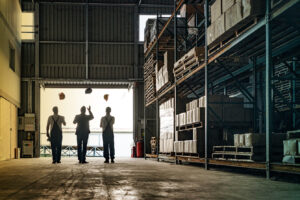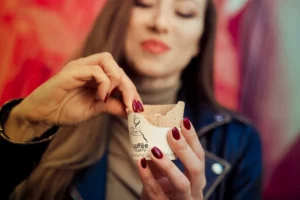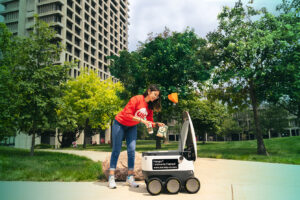We are all fascinated by ancient cultures. We try to recreate how people dressed, lived, and looked. But what if we were getting it horribly wrong…?

It’s the one accessory that goes with everything and never goes out of style. On March 1st of each year, Bulgarians adorn their clothing and wrists with martenitsas. The ancient bracelet, usually made of twisted red and white woolen or
For years, the residents of Pernik, a city of 70,000 near the Bulgarian capital Sofia, have been a subject of countless jokes told about them. What started this endless trove of jokes and how are the people of Pernik fighting
The Three Seas Initiative (3Si), a regional forum for cooperation in Central Eastern Europe, was launched during a summit in Croatia in 2016. Over the years, it has developed into a very ambitious project that has the potential of transforming the lives of more than 110 million people living in 12 states in the heart of Europe.
Read MoreOver 10 Churches and 10,000 households were demolished in the making of what is today the world's heaviest building – a monstrosity of a palace built to provide a home for Communist Romania’s leader, Nicolae Ceausescu.
Read MoreIf you’ve ever sat wondering just how far it is from the Skellige Archipelago to Cintra, you’re not the only one! Lucky for us, a team of scientists have created the most detailed map yet of the world of The Witcher to keep us on track.
Read More"Tytus, Romek i A'Tomek" was the longest-running Polish comic book series. But its creator's biography extended beyond the adventures of a monkey born from an inkblot.
Read MoreThe recent archeological discovery of a 17th C. woman’s corpse buried with a sickle around her neck points directly to her being suspected of some undead activity. However, her moniker, the vampiress, isn’t entirely fitting. It’s not that she wasn’t suspected of being undead (she was), but the term “vampire” doesn’t fit her time and place.
Read MoreIn 1978, an entire village was evacuated to accommodate what was to become the waste drainage pool for Europe's largest copper mine. Today, only the top of what used to be the local church can be seen peeking out of the infected waters that drowned the city.
Read MoreWith almost a thousand castles and another 1100 stately homes, Czechia tops the list of places to visit for those in search of aristocratic residences. In fact, one castle in Prague is considered the largest ancient building in the world. So how did Czechia become the land of castles?
Read MoreIn 1977, a vinyl record featuring the Bulgarian folk song "Izlel ye Delyo Haydutin" (Eng: Come out rebel Delyo) began its journey aboard the Voyager 1 and Voyager 2 spacecrafts. The song's journey continues to this day.
Read MoreYou’ve probably seen or heard the name “Czechia” used instead of “Czech Republic” and may have wondered what the deal was - which name is right? It’s an easy answer: both. Depending on the situation, of course.
Read MoreBat? Check. Ball? Check. Teams? Also, check. We just described baseball – or did we? What is Oina, Romania's national sport? And is it the precursor of American baseball?
Read MoreIs this real life? Is this a fantasy? In Croatia, former Yugoslavia, you can explore abandoned underground airbases. Some of them, like Željava, even have a history of daring escapes from the war-torn country.
Read MoreWhen he created the iconic "Count Dracula" accent that endures today, Hungarian actor Bela Lugosi had a secret weapon: simply not speaking English well. The myth is that he memorized sentences he couldn't understand. However, the truth is more of a grey area.
Read MoreHistory has its way of creeping into the present as it is fused with certain images, sounds, gestures, or customs. For locals, they’re quite obvious (or culturally embedded), but they may not be as clear to those visiting.
Read MoreAndrás Arató, a “silver” model for stock photos, became an internet phenomenon a few years ago. Recognized for his incredibly unique smile, some were surprised to learn he’s an actual person, and a Hungarian too.
Read MoreAfter Polish tennis player Iga Świątek won the US Open, commentators from all around the world struggled to pronounce her name. Here’s how to do it right.
Read MoreWhen speaking about certain prolific figures in Hungarian science in the early 1900s, some of their western colleagues suggested that they might as well be from Mars with their heavily accented English and superhuman intellect.
Read MoreWe bet you're familiar with the famous sailor who gets superhuman strength from downing cans of his ever-present favorite snack - spinach. Generations of people are. However, not everyone knows that he was based on a real person.
Read MoreWe’ve all heard of California’s Route 1 and Australia’s Grand Ocean Road - the world’s most stunning drives. If either tops your must-do list, you really should visit Romania’s Transfăgărășan. Even Top Gear host Jeremy Clarkson agrees.
Read MoreThe Varangian colonization of Ruthenia (modern-day Ukraine) was possible thanks to a river route flowing all the way from Lithuania through to the Black Sea.
Read MoreIt’s the one accessory that goes with everything and never goes out of style. On March 1st of each year, Bulgarians adorn their clothing and wrists with martenitsas. The ancient bracelet, usually made of twisted red and white woolen or cotton threads, announces the end of winter. And so much more.
Read MoreAfter a long period of short, cold days and endless, dark nights, there comes a time when something has to be done about it. In Hungary, the people of Mohács might just have the answer.
Read MoreIf you’ve ever sat wondering just how far it is from the Skellige Archipelago to Cintra, you’re not the only one! Lucky for us, a team of scientists have created the most detailed map yet of the world of The Witcher to keep us on track.
Read MoreWhen he created the iconic "Count Dracula" accent that endures today, Hungarian actor Bela Lugosi had a secret weapon: simply not speaking English well. The myth is that he memorized sentences he couldn't understand. However, the truth is more of a grey area.
Read MoreOver 10 Churches and 10,000 households were demolished in the making of what is today the world's heaviest building – a monstrosity of a palace built to provide a home for Communist Romania’s leader, Nicolae Ceausescu.
Read MoreCzech scientists are tirelessly working on creating an artificial Sun that will help Czechia, Europe, and the whole world access unlimited energy.
Read MoreWith continuous pushes from interest groups, the public, and the European Union for greener and more sustainable energy, the Czech government plans to build new nuclear reactors. But this is easier said than done.
Read MoreFew people know that the first jet engine was built by Romanian engineer and aviation pioneer Henri Coandă. This engine was very different from modern designs.
Read MoreThis clever ticket vending machine doesn’t take cash or cards. Instead, it requires you to do 20 squats for a free bus ride in exchange. And Romanians love it.
Read MoreIt’s always good to know your neighbor. This is almost certainly the case in the village of Hum, Croatia, which boasts fewer than 30 current residents. Besides its tiny size, its other claim to fame is a secret recipe supposedly passed down by Celtic Druids some two thousand years ago.
Read MoreTo easily navigate through Central Europe, you should know at least a few languages and no fewer than two scripts. The border between Latin and Cyrillic scripts is one of culture and politics.
Read MoreEnergy prices are rising with no sign of stopping. Economic sanctions against Russia have closed off one of the largest sources of European energy. Now begins the debate over what to do. The answer is simple, and it comes from Czechia: Small Modular Reactors.
Read MoreWhat to do with an overgrown piece of land in a bustling capital city whose residents live mostly in apartments? One active community in Riga founded urban gardens, illustrating the potential of transforming derelict plots into added value for a city.
Read MoreThere are only a handful of countries around the world where Coca-Cola does not reign supreme. Czechia and Slovakia are among them. Meet Kofola, the socialist Coke alternative introduced in the 60s, still holding strong and topping the soft-drink market.
Read MoreA snowboard shaped like a kitchen spatula? An ice cream cone? Batman? Up in Slovenia's Julian Alps, a mad scientist is building unique shapes, and the snowboarding world is taking note.
Read MoreIn Central Europe, the acceptance of traditional EU policies is high. The situation is already different in Western European countries. These two trends will determine the future of the EU.
Read MoreThere are 35 million digital nomads globally. Three Seas Initiative countries are fighting hard to gain a significant share of this community.
Read MoreHave you ever paid attention to where the drugs your doctor prescribed you come from? If so, you may have noticed that a popular antibiotic for throat infections comes from Croatia.
Read MoreThe new railway network will connect all of Poland’s larger cities with a mega-airport near Warsaw as well as connect Poland with neighboring countries.
Read MoreWhen Francis I of France suffered a stomach disease, a renowned doctor was summoned from Constantinople, soon arriving in Paris in unusual company – a flock of about 40 sheep. The good doctor got to work fermenting the sheep milk and offered it as a remedy. The King made a
Read MoreThe main engine for the Central Eastern European (CEE) economies is foreign investment, attracted by cheap labor. Are rising wages leading to a loss of competitiveness, and, if so, how should the economic development model adapt to this new reality?
Read MoreIf grabbing a to-go cup of coffee at your local café is your daily ritual, you’re not alone. One company in Bulgaria wants to make that habit as sustainable as possible with their edible, biodegradable wafer cups.
Read MoreThe sidewalks of Tallinn bustle with people going about their daily lives. They are also full of adorable, 6-wheeled delivery robots ferrying take-out and groceries to hungry patrons. A strange sight to some, here, it's just a part of daily life.
Read More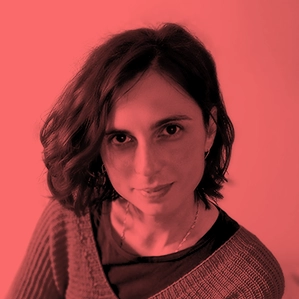
Weronika Edmunds
Holder of a DPSI in English Law and an MBA, she believes in lifelong learning.

Marek Koten
Master's student in economics, political consultant, and history enthusiast from the Czech Republic.
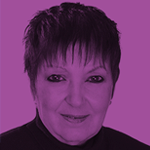
Galina Ganeva
a journalist with experience working for some of the most influential Bulgarian publications.

Lelde Benke
A Riga-based writer, content marketer and translator, and founder of LifeInRiga.com
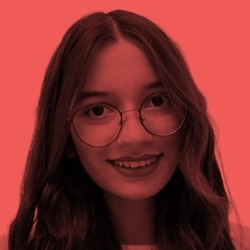
Naomi Gherman
Romania-based reader, writer and content creator with a strong interest in journalism and politics


